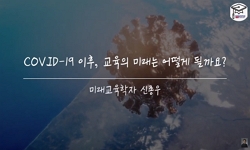The COVID-19 pandemic has caused an unprecedented upheaval in societies around the world. Based on the frameworks of a Model of goal-directed behavior, this study investigates the impact on tourists’ attitudes and changes in the intention to revisit...
http://chineseinput.net/에서 pinyin(병음)방식으로 중국어를 변환할 수 있습니다.
변환된 중국어를 복사하여 사용하시면 됩니다.
- 中文 을 입력하시려면 zhongwen을 입력하시고 space를누르시면됩니다.
- 北京 을 입력하시려면 beijing을 입력하시고 space를 누르시면 됩니다.
부가정보
다국어 초록 (Multilingual Abstract)
The COVID-19 pandemic has caused an unprecedented upheaval in societies around the world. Based on the frameworks of a Model of goal-directed behavior, this study investigates the impact on tourists’ attitudes and changes in the intention to revisit smart tourism cities in the context of the COVID-19 pandemic that inhibits tourism and the smart tourism technology experience and social media exposure that facilitate tourism. The study was conducted using an online questionnaire and was conducted on people around the world using MTurk in mid-November 2020. This study collected a total of 184 responses, and the found that the experience of smart tourism technology and exposure to social media have a positive effect on revisiting smart tourism destinations. Additionally, the perceived risk of COVID-19 has been shown to have a positive impact on the reactance of freedom of choice. The reactance of freedom of choice was identified to have a non-significant effect on the desire for travel and the intention to revisit the smart tourism city, and they were found to be mutually independent. Finally, the perceived COVID-19 risk has a positive effect on the intention to use virtual tourism. In this study, beyond simply reviewing existing literature reporting on smart technology, an unprecedented pandemic, virtual tourism, and intention to revisit smart tourism city, it offers meaningful implications for the tourism industry, which is preparing for the post-Corona era.
목차 (Table of Contents)
- 1. Introduction 1
- 1.1 Research Background 1
- 1.2 Purpose of the study 4
- 1.3 Research Questions 5
- 2. Theoretical Background 5
- 1. Introduction 1
- 1.1 Research Background 1
- 1.2 Purpose of the study 4
- 1.3 Research Questions 5
- 2. Theoretical Background 5
- 2.1 Smart Tourism and Destination 5
- 2.1.1 Smart Tourism 5
- 2.1.2 Smart Tourism City (STC) 10
- 2.2 Smart Tourism Technologies (STTs) 13
- 2.2.1 Accessibility 15
- 2.2.2 Informativeness 15
- 2.2.3 Interactivity 16
- 2.2.4 Personalization 16
- 2.3 Social Media Exposure 17
- 2.4 COVID-19 and Tourism 18
- 2.4.1 Perceived risk of COVID-19 18
- 2.4.2 Reactance in COVID-19 20
- 2.4.3 Desire to Travel 23
- 2.4.4 Intention to revisit Smart Tourism City 25
- 2.4.5 Intention to use Virtual Tourism 26
- 2.5 A model of goal-directed behavior (MGB) 28
- 3. Research Methodology 30
- 3.1 Research Model 30
- 3.2 Research Hypothesis 32
- 3.2.1 STTs Experience and Desire to Travel 32
- 3.2.2 Social Media Exposure and Desire to Travel 33
- 3.2.3 Perceived risk of COVID-19 and Reactance in COVID-19, Intention to use Virtual Tourism 34
- 3.2.4 Reactance in COVID-19 and Desire to Travel, Intention to revisit STC 36
- 3.2.5 Desire to Travel and Intention to revisit STC, Intention to use Virtual Tourism 38
- 3.2.6 Intention to use Virtual Tourism and Intention to revisit STC 39
- 3.3 Measure Instruments 39
- 3.3.1 Study variables and Measuring Dimensions 40
- 3.4 Sampling and data collection 45
- 3.5 Data Analysis 46
- 4. Analysis and Results 46
- 4.1 Demographic Characteristics 46
- 4.2 Common method bias test and HTMT 50
- 4.3 Measurement Model 50
- 4.4 Structural model analysis 54
- 4.5 Hierarchical component modeling 54
- 4.6 Explanatory power 55
- 4.7 Predictive relevance 55
- 4.8 Effect size 56
- 4.9 SEM-PLS Structural Model and Hypotheses testing 56
- 5. Conclusions and Suggestions 58
- 5.1 Discussion 58
- 5.2 Implication 61
- 5.3 Limitation and Future study 62
- References 64
- Appendix A 81








